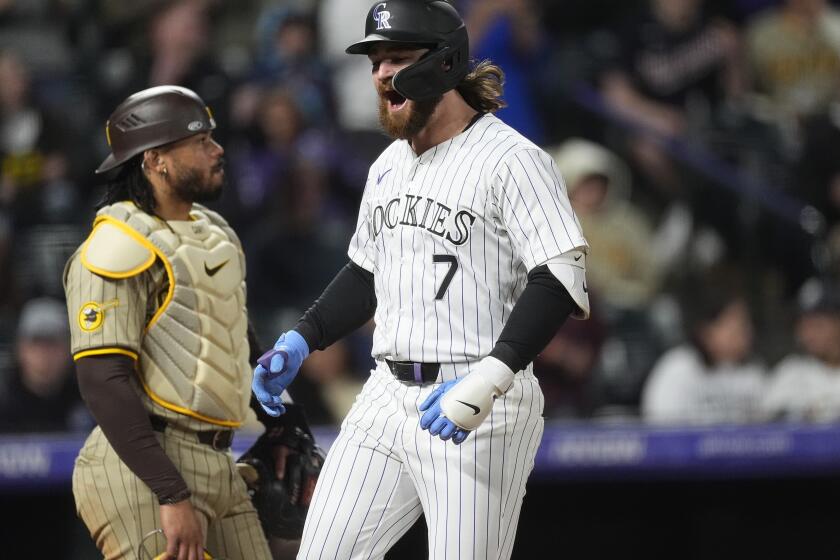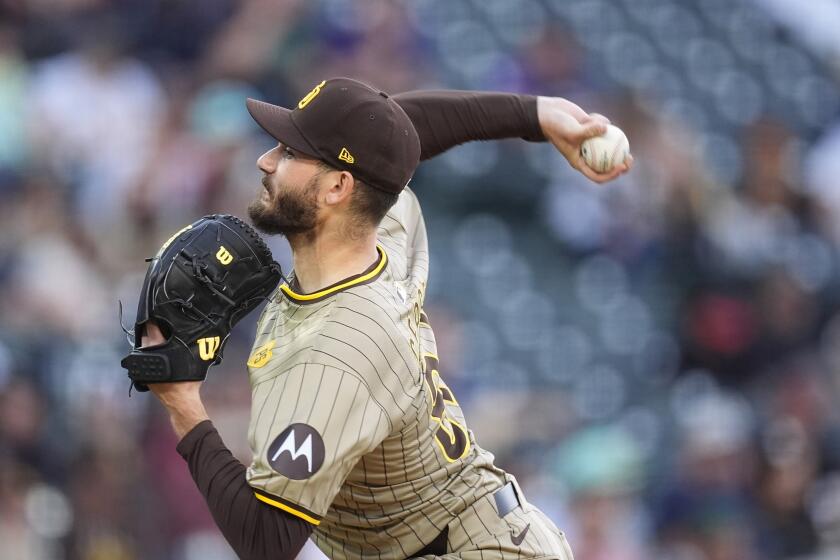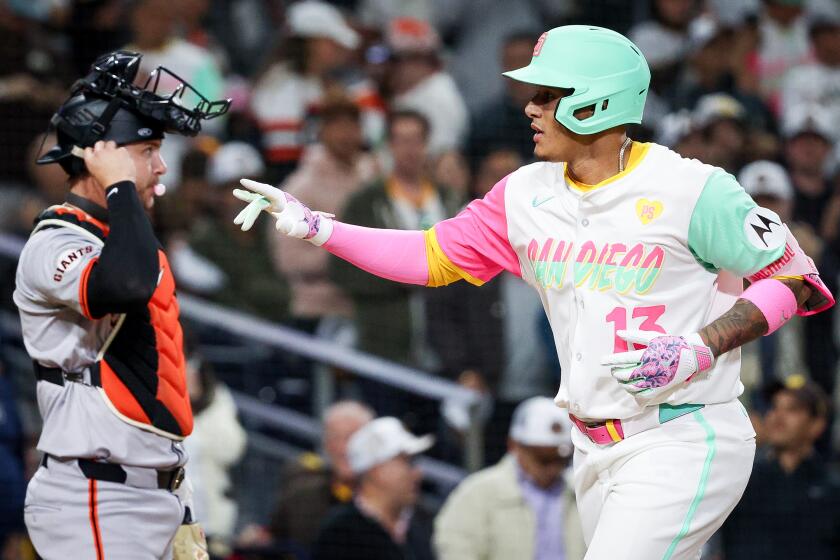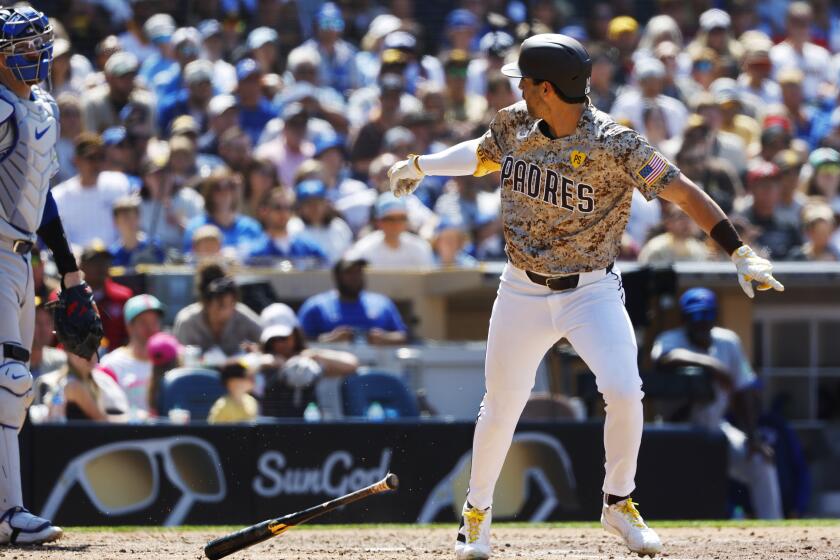Philip Rivers aims for more, which may require less
The plays flashed before him, one after the other on a screen.
Every pass he made, the good and the bad and the awesome.
Philip Rivers sat, over the course of weeks this spring, watching 661 passes, some of them over and over.
He knew none of it mattered. He couldn’t go back and change time, not the 4-12 record, not another season without a championship.
He knew what was coming each time. That’s the type of memory he has. Like a golfer can recite every shot he executed during a tournament, Rivers will recall a 12-yard hitch to Eric Parker from 2006.
As he sat watching his throws from 2015, Rivers wasn’t surprised by what he saw. And he wasn’t so much interested in the 437 completions. Neither did he take much from the balls he had to throw away nor the one that could have been caught but weren’t.
It was a pass here and there that he would rewind and watch again, to see what he missed or why what he thought he saw was not right, what he could have done better.
The first-quarter throw he hurried while under pressure and sailed over Stevie Johnson, on a third-and-five just outside the red zone, in what would be a 24-19 loss at Cincinnati. The choice to forego the quick strike to Malcom Floyd for a certain first down and instead go for the big strike and overthrowing Dontrelle Inman on a third down in Baltimore, forcing a fourth-quarter punt in a 29-26 loss.
On and on Rivers went earlier this summer, listing the missed opportunities from his hand.
“It was just make the throws you’re supposed to make,” Rivers said in that exasperated tone he gets when describing what might have been. “It’s the throws I’ve thrown a million times. It’s plays like that … It’s just, ‘Make it!’ “
Essentially, what has happened is the 34-year-old heart and soul of the franchise has sized up the remaining opening of the Chargers championship window with him still playing and accepted he’s the guy who will have to lift 52 other players and 20-odd coaches and a beleaguered ownership and an entire fan base over the sill.
To do so, he knows he sometimes has to pull a rabbit out of his helmet and that other times he simply can’t miss the layup.
“It’s the ones I’m supposed to make that eat at you,” he said.
Rivers completed 71 percent of his passes and had a 112.1 rating in the Chargers’ four 2015 victories, an apt measure of how important he was in those games. No NFL team that finished 4-12 or worse ever had a quarterback as good as Rivers. His 93.8 rating was highest among any QB that started more than six games for such a bad team. He set a career high with 4,792 yards.
But that it wasn’t enough – again – is really all that mattered when assessing the season.
The Chargers have been to the playoffs once in the past six seasons after going each of Rivers’ first four years as the starting quarterback.
He is on the verge of being ranked in the top-10 in career passing touchdowns and is 14th in career passing yards among all NFL quarterbacks that have ever played, but he is also closer every year to the dreaded “Yeah, but ...” that dogs Hall of Famers Dan Fouts and Dan Marino.
The Chargers lost nine games by one score (eight or fewer points) in ‘15. Rivers was a big, if not the biggest, reason they were so close in most, if not all, of those games.
But what he wasn’t able to do that he should have done, that is what he is looking to fix. It doesn’t require a major change. It requires discipline and consistency.
That is what drove him through offseason practices and in training camp, and the lesson derived is a part of his focus as he opens his 11th season running the Chargers offense Sunday at Kansas City.
He can’t do it all himself, but he can make sure both that he gives his team the best opportunity at all times and that he’s not the reason
It was with the memory of one of the many losses in 2015 that could have been victories that Rivers sometimes looked deep and then threw for the easy short completion in a training camp practice this summer.
“That’s the play you should make to get the first down when maybe you could force it in there (to a different target),” he said. “Which is hard to do in your 13th training camp.”
It’s tempting to go for the big play, especially in a practice where there is no consequence, especially for a QB who has made the big play so often that it is expected.
“There is a balance when you take those chances,” Rivers said. “… There are some games you walk away going, ‘All right, I had to hit every play or we weren’t going to win.’ There are others where you just say, ‘Just make the two that you normally make and you win.’
“There are times when I think a player that is expected to be really good and a team counts on to make big plays, there is a time you go, I do have to make big plays. There are ones where all I have to do is make plays I’m supposed to.”
A part of Rivers’ efficacy as a leader is the fact he doesn’t talk about the offensive line that allowed him to be harassed – hurried, knocked down or sacked – more than all but three other quarterbacks in the league. He doesn’t lament a defense that couldn’t get the ball back in his hands nearly enough or the running game that won’t allow any semblance of an effective play-action game to develop.
He does talk about his mistakes.
Among the plays he thinks he should have made was a first-quarter overthrow to a wide-open Antonio Gates in the end zone in Green Bay. Rivers was hit on the foot and thrown off-balance as he let go of the ball.
“I know,” he said. “But I could have punted that ball to him and we’d have a touchdown.”
In that game, Rivers attempted and completed more passes for more yards than in any of his other 189 starts. On successive drives between the second and third quarter, he completed two 12 of 15 passes for 183 yards and two touchdowns to tie the game at 17-17. After he went 43-of-65 for 503 yards with those two TDs and without an interception, Chargers head coach Mike McCoy was literally brought to tears talking about Rivers’ performance.
But it was that third-down pass from the 18 a little more than 11½ minutes in that stuck with Rivers as he watched the plays from that game.
Basically, Rivers has reached a point where all he has to work on is perfection.






